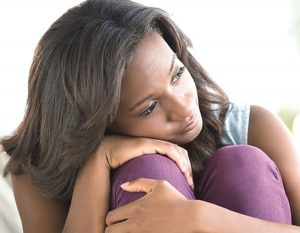UNICEF’s State of the World’s Children 2021 report says that in Nigeria, one in six young people aged 15 to 24 said they often feel depressed, have little interest in doing things, or are worried, nervous or anxious.
Early findings from the international survey conducted by UNICEF and Gallup of approximately 20,000 children and adults in 21 countries, including Nigeria indicated that a median of 1 in 5 young people aged 15 to 24 surveyed said they often feel depressed or have little interest in doing things.
In the most comprehensive look at the mental health of children, adolescents and caregivers in the 21st century, the UN body said that more than 1 in 7 adolescents aged 10–19 is estimated to live with a diagnosed mental health problem globally.
It declared that almost 46,000 adolescents die from suicide each year, among the top five causes of death for their age group. Meanwhile, wide gaps persist between mental health needs and mental health funding.
The report, titled “The State of the World’s Children 2021; On My Mind: promoting, protecting and caring for children’s mental health”, said about 2 per cent of government health budgets are allocated to mental health spending globally even as it estimated that nearly $390 billion a year is lost to mental health problems that lead to disability or death among young people.
According to the latest available data from UNICEF, globally, at least 1 in 7 children has been directly affected by lockdowns, while more than 1.6 billion children have suffered some loss of education. The disruption to routines, education, recreation, as well as concern for family income and health, is leaving many young people feeling afraid, angry, and concerned for their future.
UNICEF Nigeria Representative, Peter Hawkins stated “Even before the pandemic, far too many children were burdened under the weight of unaddressed mental health issues. This has been compounded by the pandemic. The impact is significant, and it is sadly just the tip of the iceberg.”
While protective factors, such as loving caregivers, safe school environments, and positive peer relationships can help reduce the risk of mental health problems, the report warns that significant barriers, including stigma and lack of funding, are preventing too many children from experiencing positive mental health or accessing the support they need.
The State of the World’s Children 2021 calls on governments, and public and private sector partners, to commit, communicate and act to promote mental health for all children, adolescents and caregivers, protect those in need of help, and care for the most vulnerable.
It also urged investment in child and adolescent mental health across sectors; integrating and scaling up evidence-based interventions across health, education and social protection sectors and breaking the silence surrounding mental illness and taking seriously the experiences of children and young people.
The report notes that a mix of genetics, experience and environmental factors from the earliest days, including parenting, schooling, quality of relationships, exposure to violence or abuse, discrimination, poverty, humanitarian crises, and health emergencies such as COVID-19, all shape and effect children’s mental health throughout their lifetime.
While protective factors, such as loving caregivers, safe school environments, and positive peer relationships can help reduce the risk of mental health problems, the report warns that significant barriers, including stigma and lack of funding, are preventing too many children from experiencing positive mental health or accessing the support they need.



